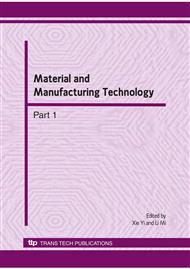p.241
p.246
p.251
p.256
p.261
p.266
p.271
p.276
p.280
A Novel Immune-PSO Algorithm for Job Shop Scheduling
Abstract:
The job shop scheduling problem (JSSP) is one of the most difficult problems, as it is classified as an NP-complete one. Particle Swarm Optimization, a nature-inspired evolutionary algorithm, has been successful in solving a wide range of real-value optimization problems. However, little attempts have been made to extend it to discrete problems. In this paper, a new particle swarm optimization method based on the clonal selection algorithm is proposed to avoid premature convergence and guarantee the diversity of the population. Experimental results indicate that the proposed algorithm is highly competitive, being able to produce better solutions than GA and CLONALG in several cases, and is a viable alternative for solving efficiently job shop scheduling problem.
Info:
Periodical:
Pages:
261-265
Citation:
Online since:
August 2010
Price:
Сopyright:
© 2010 Trans Tech Publications Ltd. All Rights Reserved
Share:
Citation:


